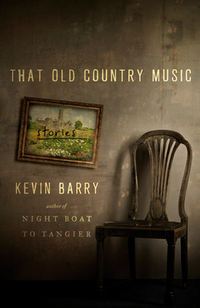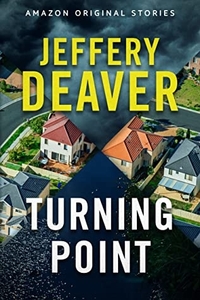Robot Artists and Black Swans by Bruce Sterling
 Wednesday, May 12, 2021 at 6:08AM
Wednesday, May 12, 2021 at 6:08AM 
Published in an illustrated edition by Tachyon Publications on April 27, 2021
Seven Bruce Sterling stories are collected in Robot Artists and Black Swans. I liked a couple of them, was amused by a couple more, and didn’t understand the rest. That’s consistent with my experience of Sterling’s work.
A forward explains that these stories of “fantascienza” are written by Bruno Argento, a Turinese writer whose pen name is Bruce Sterling. The stories are linked by their connection to Italy. Neal Stephenson contributes an introduction that extols the virtues of cyberpunk, which some of these stories might be.
The robot artist in the collection’s title is a wheelchair that once belonged to a Japanese artist. Now it roams around the world, making art in various ways, assembling “mosaics of pebbles” or weaving “great lattices from twigs and dry grass, creations like fantastic bird’s nests.” The wheelchair is followed by Ghost Club intellectuals who document its creations for the appreciation of the Beau Monde. Its current follower is Wolfgang, who defends it from those who view science as being at war with the humanities. Wolfgang is convinced that the wheelchair is producing important art, but he is struggling to find a “clear line of critical attack” to explain to the world exactly why the wheelchair must be valued. He likens the robot artist to beautiful cities like Verona, “authentic entities, growing from landscapes,” loved for their beauty despite (like the robot artist) not being alive or intelligent. A scientist who accuses Wolfgang of belonging to a cult wonders why he would “walk the Earth making up weird artsy bullshit about a cheap parlor trick,” prompting the retort that science is “notoriously useless for seeking metaphysical truth or establishing ethical values.” Both arguments have merit. The story dramatizes culture wars, asks whether there might be artistry in computer code, ponders the role of art, science, and critics in life, considers whether there is a “third state of being,” and asks whether art can be good if we don’t understand it. Add a post-anthropologist who considers herself to be superhuman and you’ve got quite a story. While it sometimes drags in its exploration of plot tangents, “Robot in Roses” showcases Sterling’s far-ranging imagination.
The other story that grabbed me is “Esoteric City,” a tongue-in-cheek tale of the supernatural. A necromancer named Achille Occhietti conjures a demon mummy as his guide to the dark spirits. The mummy leads Occhietti down a spiral staircase to Hell, a “keenly tourist-friendly” path with glossy signs “that urged the abandonment of all hope in fourteen official European Union languages.” Dead Italian journalists and literary critics make the most noise in Hell. Occhietti is fated to return to the world of the living to meet Satan, who has rejected “Cold War-style metaphysics.” To make a deal for souls now, he offers global solutions to climate change — at a price.
“Black Swan” is about a tech journalist whose source, Massimo Montaldo, hacks “chip secrets” to manipulate the industry. Montaldo wants to release his hack of a revolutionary memristor to an Italian company so that Italy will no longer be a second-rate tech power. When the journalist insists on learning the source of the technology, Montaldo explains his knowledge of 64 Italys that exist in 64 universes. In one of them, the tech writer made more of himself than he did in the universe he occupies.
“Kill the Moon” is a cute story about Italians who followed American astronauts to the moon. Instead of sending scientists, Italy sent a billionaire and “his busty actress girlfriend.” Because Italy.
Three other stories did nothing for me at all, so I can only recommend half the collection.
RECOMMENDED WITH RESERVATIONS



